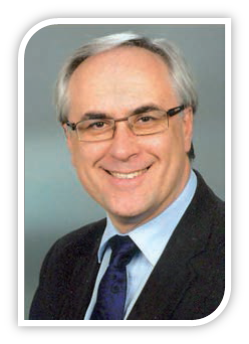Introduction remarks by Pr Peter C. Konturek, new President of ISM
Dear Colleagues,
The 5th World Congress of Targeting Microbiota in Berlin was very successful and I am happy to announce the next conference in Porto/Portugal. The last meeting attended more than 350 participants and the scientific level of the conference was very high. Thanks to the tireless support of Prof. Marvin Edeas, from Institute Cochin, we were able to invite leading microbiota scientists from all over the world. The venue has created occasions and basis for further scientific networks and collaborations between the attenders as well as a stronger relationship between basic research and clinical aspects.
Microbiota is one of the most important topics of medicine in this decade. Due to huge advancements in microbiota technology, the enormous progress in understanding of the function of microorganisms in different ecological niches such as gut, skin, lung, oral cavity and etc. has been achieved. The greatest progress has been made in the area of gut microbiota. A number of important axes between gut microbiota and extra-intestinal organs such as liver, skin, brain, lungs or kidney have been described. While most advances have been made in the area related to bacterial communities, further research need to be extended to other classes of microbes such as fungi, viruses and bacteriophages. Furthermore, to achieve precise microbiome-based medicine in the future, it is necessary to understand which microorganisms mediate important microbiome-host interactions under health and disease conditions. The recent studies have revealed that Feacalibacterium prausnitzi could be beneficial in the treatment of inflammatory bowel disease, and Akkermansia muciniphila for improving metabolic health.
The concept that the gut microbiota plays a central role in health and disease is now well established. The next goal is to therapeutically manipulate microbiota to promote health and prevent chronic diseases.
For me as a clinician and gastroenterologist, the most important is the translation of basic science into clinical practice.
The future interventional trails using different modulators of microbiota will be ultimately needed to determine the impact of microbiota in human health. The first clinical studies using fecal microbiota transfer showed that this method may be very effective in the treatment of infectious and inflammatory diseases of the gut.
For this reason, the main strategy for the 6th World Congress of Targeting Microbiota in 2018 in Porto will be a strong communication between basic, pre-clinical scientists and clinicians.
Let’s see again for creating the big family of Microbiota! This is my real wish as ISM President.
Looking forward to seeing you soon, my warmest regards.
 Prof. Peter C. Konturek
Prof. Peter C. Konturek
President of the International Society of Microbiota
























































